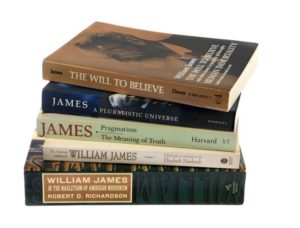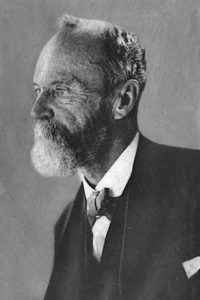‘Vulnerabilities and our capabilities…’
December 21, 2017James cataloged one type of experience: the personal; the intimate. The subtitle, “A Study in Human Nature,” is perhaps a more accurate reflection of its contents. James’s subject was not theories of heaven nor different types of congregations; it was each congregant at 3 a.m., staring at the ceiling, alone. His sensitivity was to the reasons we feel compelled to believe — among them our “conscience,” “helplessness” and “incompleteness” — and how belief might reward those reasons.
In Praise of William James
The Enthusiast
by John Williams, NYTimes
A psychologist and philosopher (and oldest brother of the novelist Henry), James was not a follower of any church, and had little academic interest in institutional religion, but he was obsessively curious about the inner experiences of believers.
“Is there in life any purpose which the inevitable death which awaits me does not undo and destroy?” (Leo Tolstoy)
To James, the very broad category of religious experience was inextricably human, and to attempt to argue people out of it would have struck him as similar to trying to argue someone out of right-handedness. “Taking creeds and faith-states together, as forming ‘religions,’ ” he wrote, “and treating these as purely subjective phenomena, without regard to the question of their ‘truth,’ we are obliged, on account of their extraordinary influence upon action and endurance, to class them amongst the most important biological functions of mankind.”
Hope.
“Nothing worth doing is completed in our lifetime; therefore we must be saved by hope. Nothing true or beautiful makes complete sense in any immediate context of history; therefore we must be saved by faith. Nothing we do, however virtuous, can be accomplished alone; therefore, we are saved by love.”
-Reinhold Niebuhr


